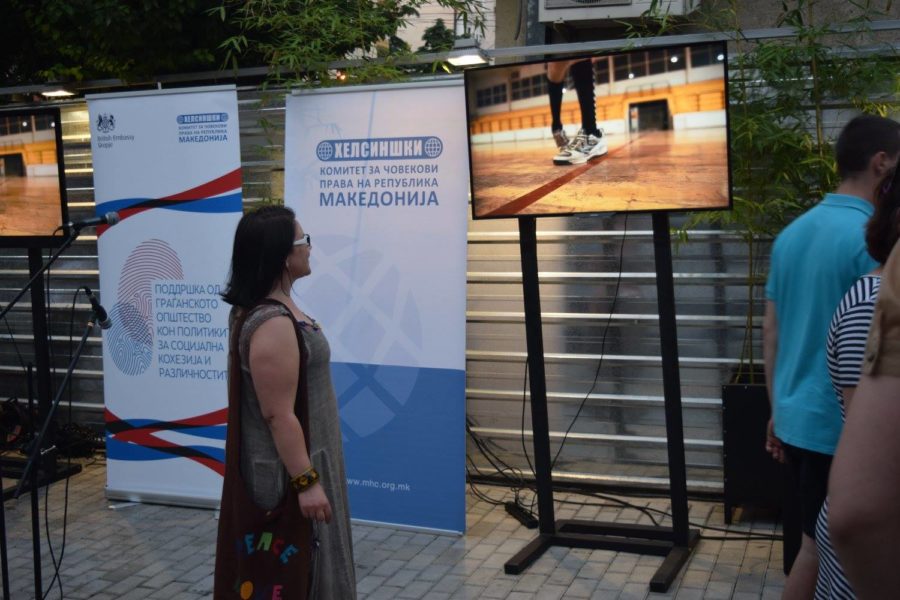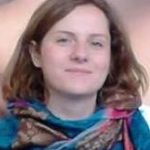5th July 2017 Skopje, North Macedonia
Do we have eyes for equality?

In a society where stereotypes and prejudices are much present, one of the main challenges is to work on social cohesion of the vulnerable groups. Often it is a challenge itself to explain to people what is social cohesion, and what is diversity? Social cohesion is when we look at what all of us can do together so that we work and live better with each other. Social cohesion is when we look at what are our abilities, and what people can do, not at what people can’t do. Diversity is when we connect by what brings us together, not focused on what makes us different.
Diversity in a society can be seen from various angles and it always needs to include everyone no matter their ethnic group, social background, gender, sexual orientation, abilities, social standing or age.
Yet, when it comes to people with disabilities they are usually more vulnerable as we tend to perceive them often by what prevents them to have a fulfilled life, instead of focusing on their talents and abilities. We often perceive people with disability by the things they can’t do, and not by their talents and abilities.
That’s why one of the key things on which we work in our programme on social cohesion is to show that the people with disabilities can and are actively contributing in our society.
We use and we will continue to use all media tools to reach the majority of people. We talk to people who lead and work in the state institutions, to other members of civil society organisations, to businesses, to parents, to educators and to everyone that can contribute to this goal.
We need to share the experiences of people with disabilities and the experiences of their families and friends. We need to do this to showcase that these people are around us, in our neighbourhoods, schools and if we allow them – members of working environments.
We need to promote their stories to also inspire other people with disabilities to get out and join the society, but also for others in the society to promote an environment when people with disabilities can succeed, and that we can all be proud of them and their successes.
One great example that I can share is when we hosted Lord Chris Holmes at the beginning of the summer for his lecture to share his inspirational story to Macedonia. He is Britain’s most successful Paralympic swimmer, who lost his sight overnight at age 14 and still managed to overcome obstacles, become certified lawyer and swimming champion.
We joined him at the stage in the Youth Cultural Centre in Skopje with two extraordinary people from Macedonia – the Paralympic shooter Branimir Jovanovski and Vangel Trkaljanov, who despite being in a wheelchair is actively engaged in paragliding and parachuting.
In the few-hours emotional event we had more than 160 people in the room and over 200 online listening and reliving their lives and stories, their struggles and their successes. I sincerely hope that among the viewers of this event were everyday citizens who would think about their neighbours, and people who lead and work in state institutions that would support disabled people’s potential.
You can check out the whole event online here.
It was encouraging to see many young people with disabilities and their families present. For the first time, I felt that in the audience there was no pity for the disability of the speakers, but a pride for their successes and their will for life.
Our mission, in the Helsinki Committee for Human Rights in Macedonia, on raising awareness about inclusion, continued with our work on the campaign Look with Your Heart, Accept Diversity. We aim to present the talents and capabilities of students with different (dis)abilities and demonstrate that they are able to be active in sport, social and cultural life. The video is prepared based on a scenario by two students from the Special Education Institute at the Philosophy Faculty in Skopje. Please spend few minutes of your time to see the moving video.
This short video has a very powerful moral to tell us: blind is one who has no sense of solidarity, empathy, justice and cohesion, and not the one who has no sense for sight. Disabled is the one who cannot see and respect diversity among people, not someone that is judged by what they cannot do.
There are many more stories to tell and I will save them for next times. Our work continues. There is a lot ahead of us to be done.
As Chris Holmes says, ‘to live means to constantly seek, strive, and learn. Universe of opportunity. Every society must include everyone, regardless of age, disability, or other grounds. However, this is not an easy task. It is a challenge for everyone to play their role, at the central government level, at the local level and in international organisations. Every society has a mission to encourage, liberate all its people and all their potential. My message is – enable inclusion or fail as a society!’
